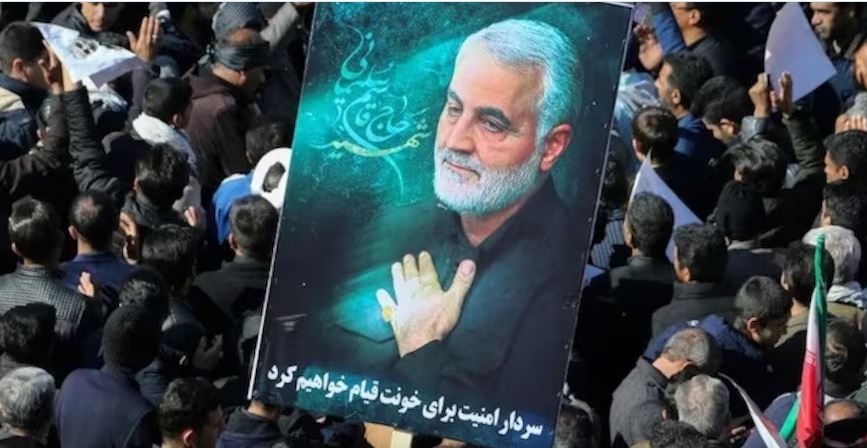
103 killed in Iran blasts at Suleimani memorial ceremony, Iran blames US, Israel
text_fieldsIn twin bomb blasts in Iran 103 Iranians lost their lives and over 170 were injured during a memorial ceremony in Iran. Iran accused Israel and the United States of responsibility for the blasts in the event aimed to commemorate the fourth anniversary of the assassination of Qassem Suleimani, the influential head of Iran's al-Quds force.
The explosions occurred in the south-central city of Kerman, where crowds had gathered to honour the late Suleimani, known for extending Iranian influence in Lebanon, Syria, and Iraq.
The attack, marked as the deadliest since the Iranian Revolution in 1979, unfolded with two remotely detonated bombs. The first explosion took place 700 meters from Suleimani's burial site, followed by another 300 meters away. The death toll, initially reported at 103, was revised down, but the health minister warned that the number could rise as many of the wounded were in critical condition.
The timing of the attack could not be more delicate, with ongoing conflicts in the Middle East adding to the region's volatility. The Gaza-Israel conflict continues, with accusations from Hamas that Israel launched a drone attack killing its deputy head in Beirut. Israel denied involvement, citing a shift in rules of engagement in response to prior events.
Iran's new interior minister, Ahmad Vahidi, refrained from attributing blame immediately. The lack of a clear claim from any side deepened the mystery surrounding the attack. The United States State Department asserted no reason to believe Israel was responsible.
Iran's president, Ebrahim Raisi, responded with a resilient tone, stating that such actions would not disturb the nation's determination to defend Islamic ideals. He emphasized Iran's commitment to combating terror and violence, expressing no desire to directly engage with Israel.
The explosions occurred on the roads leading to the Garden of Martyrs cemetery in Kerman, where Suleimani is buried. The site has become a place of pilgrimage for supporters of the "axis of resistance" against the US and the West. Iranian officials, including the deputy speaker of the parliament, pointed fingers at Israel, vowing an act of revenge with global operational value.
In Lebanon, the head of Hezbollah, Sayyed Hassan Nasrallah, condemned the killing of Hamas' deputy chief in Beirut, blaming Israel for a "flagrant Israeli aggression." The strike hit a Hezbollah stronghold, escalating tensions in the already volatile region.
The chief of Israel's Mossad intelligence service, David Barnea, vowed to hunt down every Hamas member involved in the October 7 attack on Israel. His remarks are seen as indicating Israel's involvement in the recent blast.
As world leaders, including Russian President Vladimir Putin, expressed sympathy, the incident highlighted the precarious nature of the Middle East. With conflicts in Gaza, heightened tensions between Iran and Israel, and the spectre of terrorist attacks, the region faces a challenging period that demands international attention and diplomatic efforts.






















